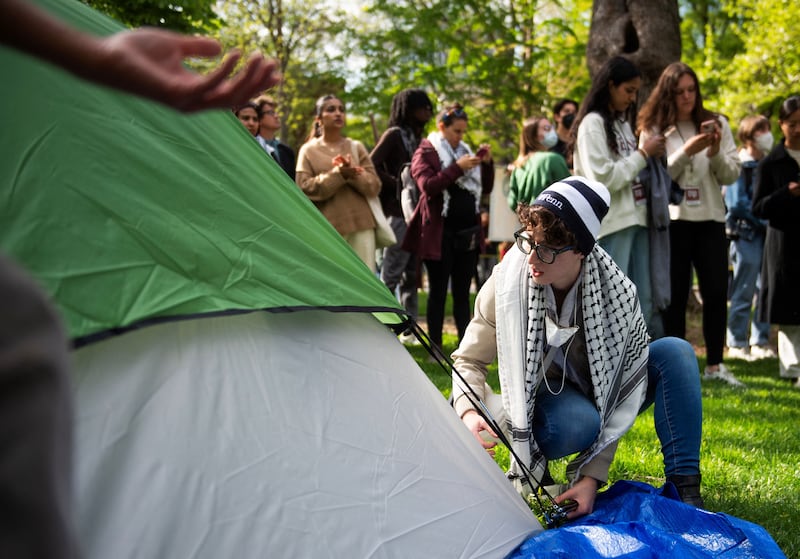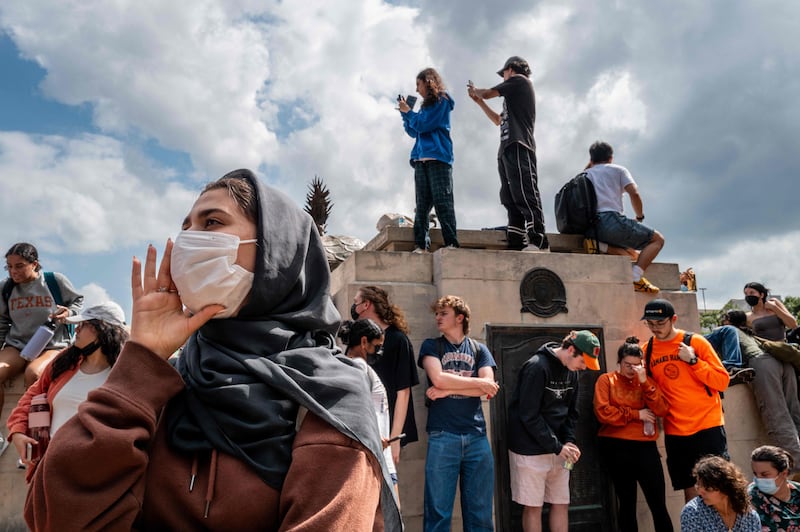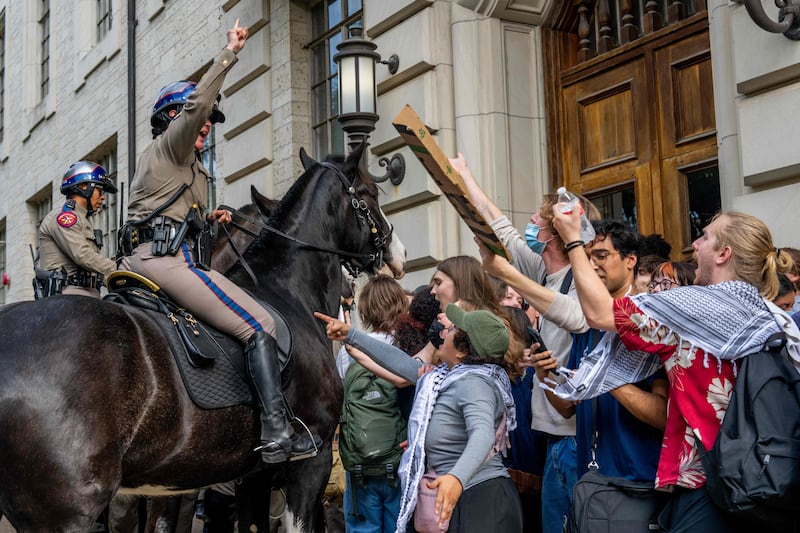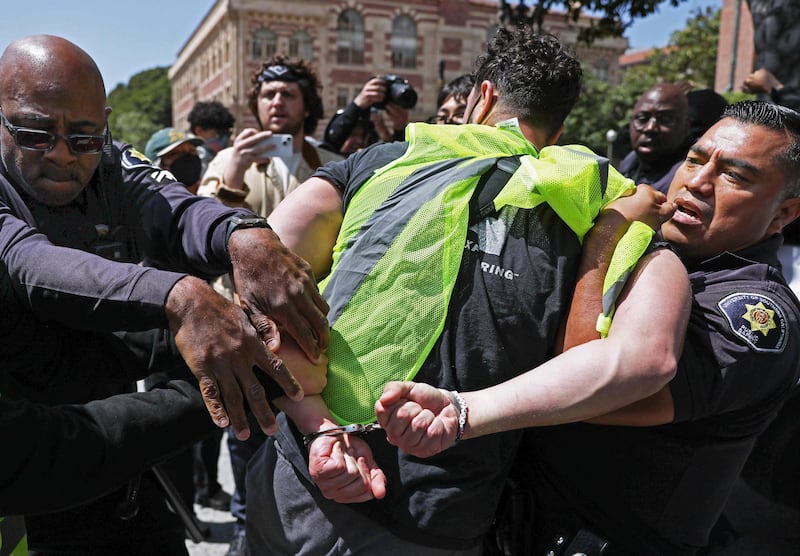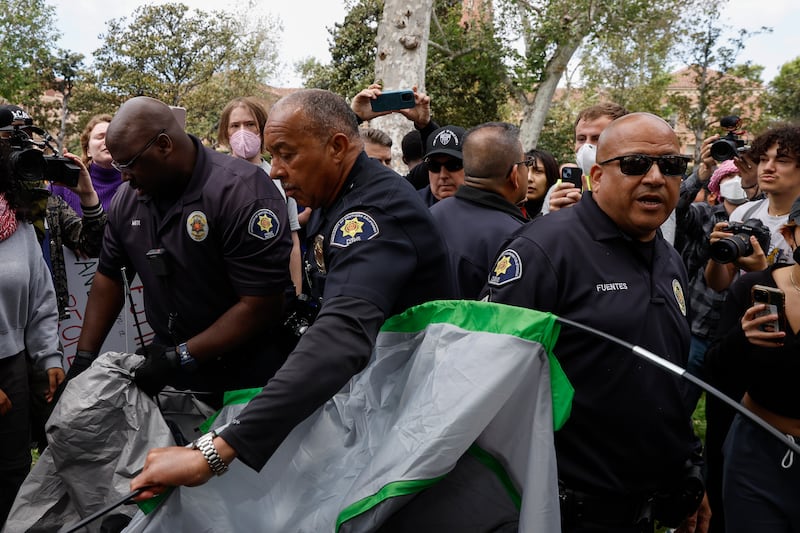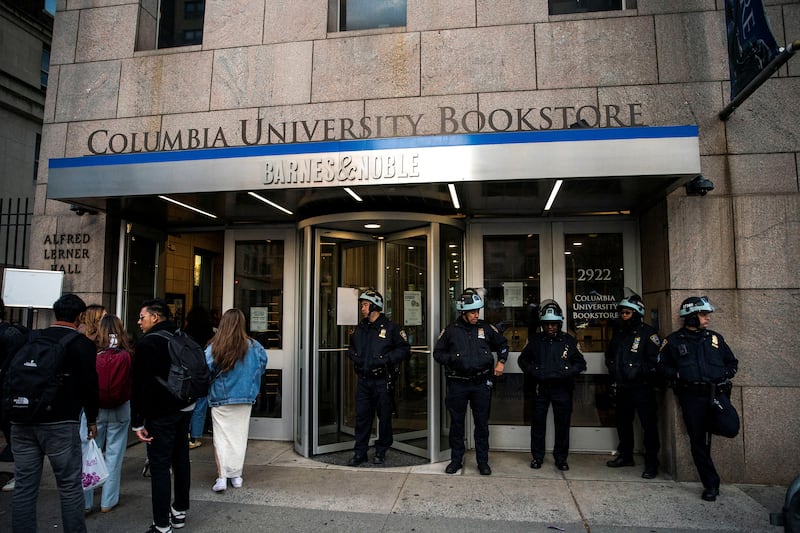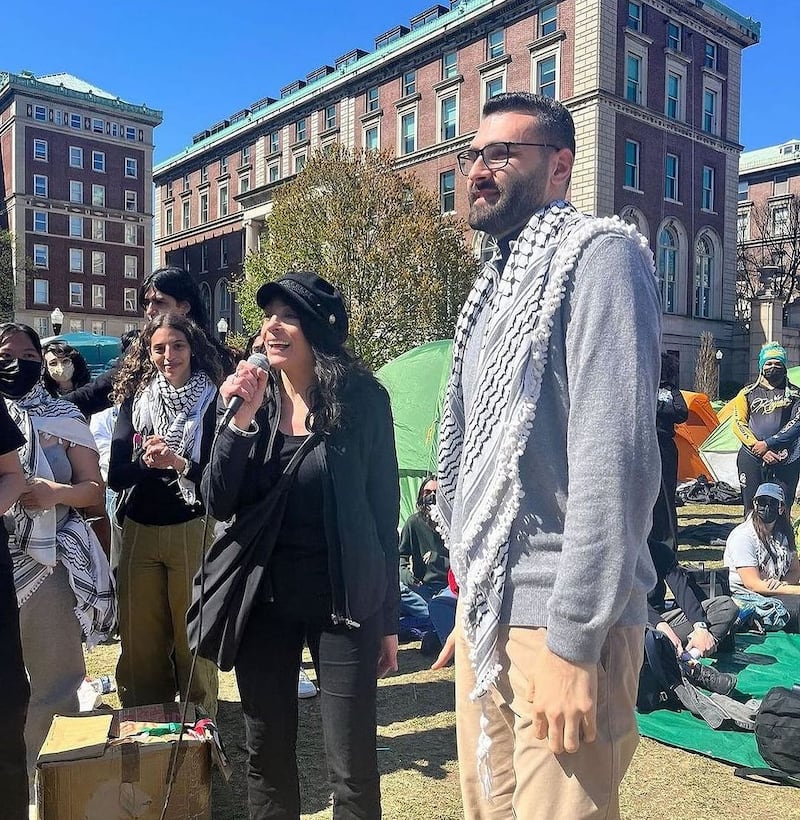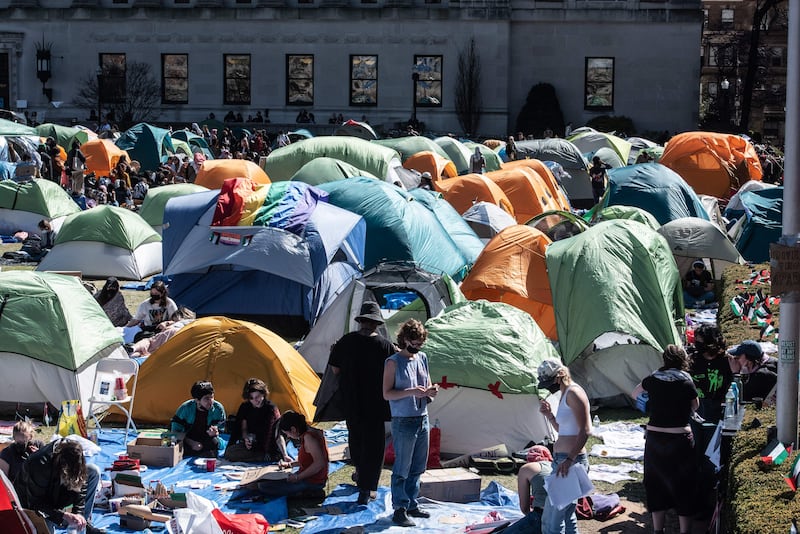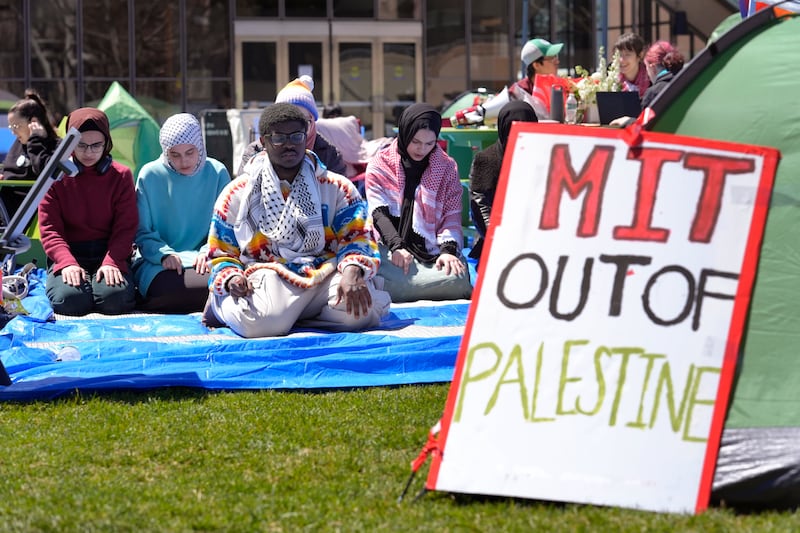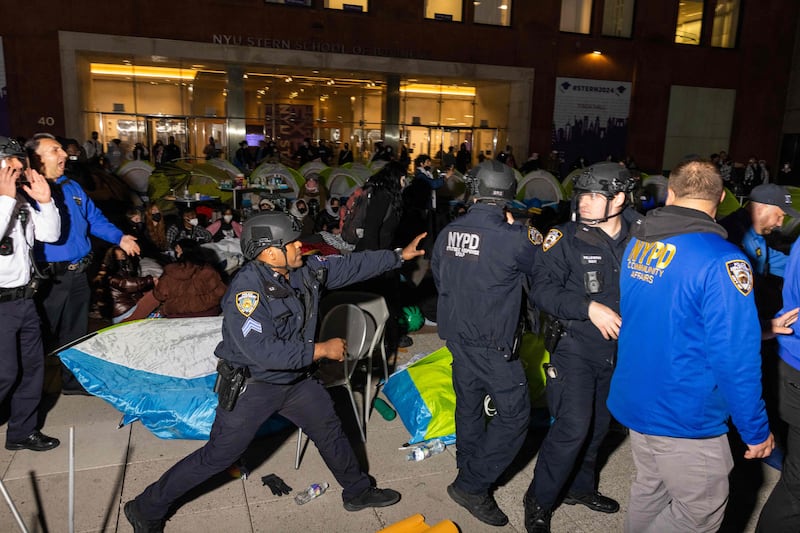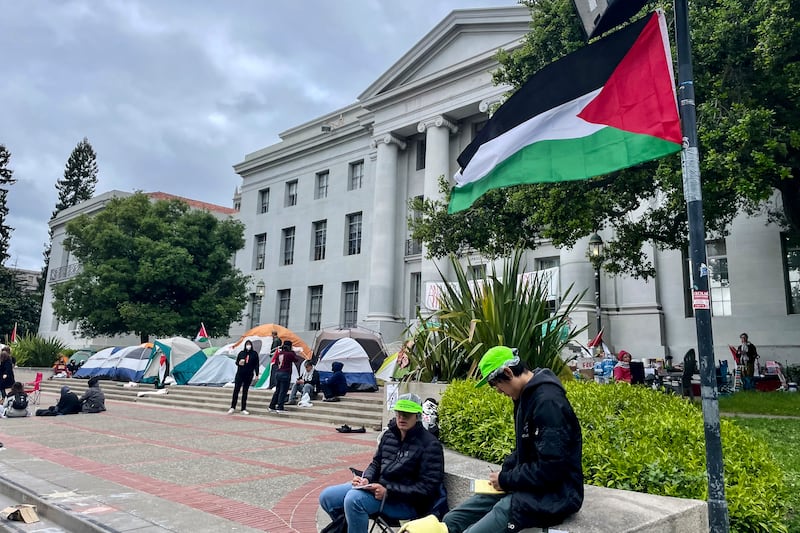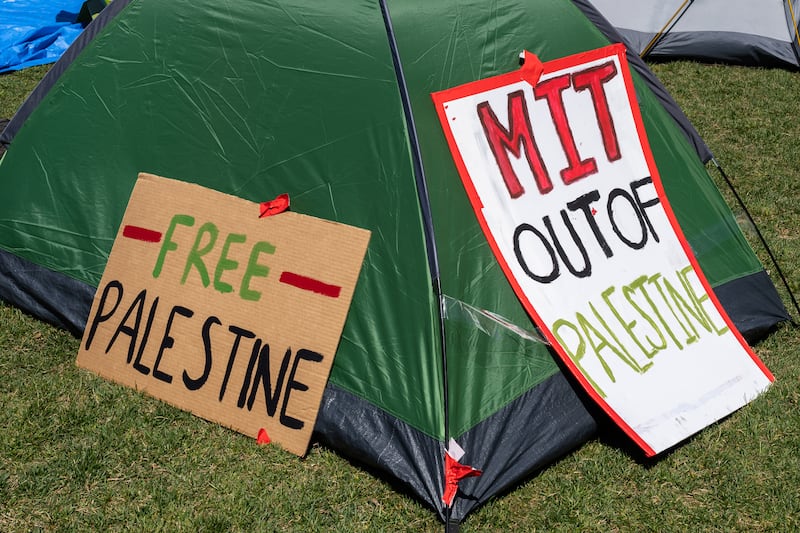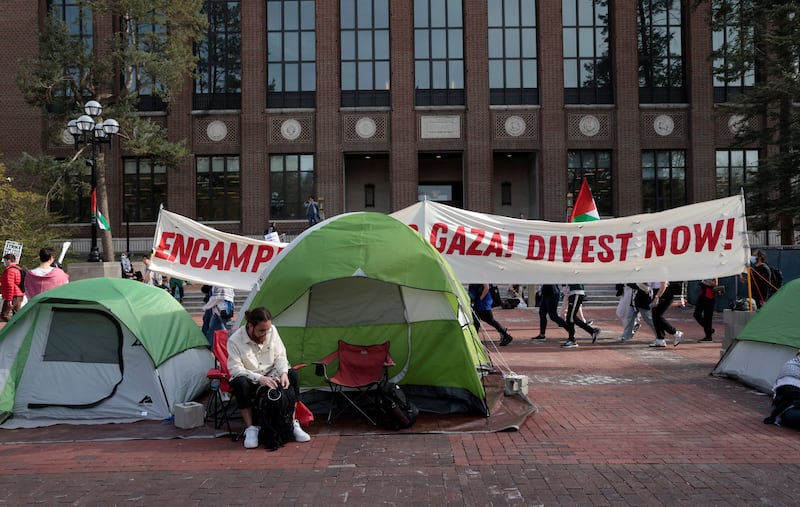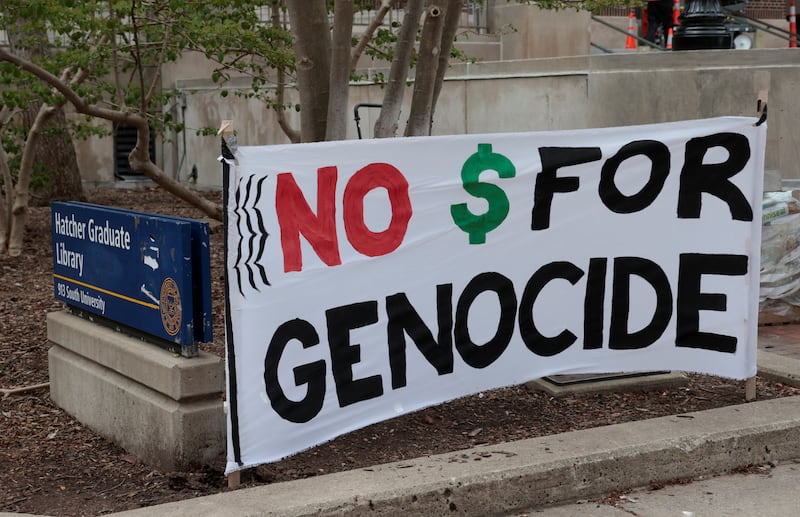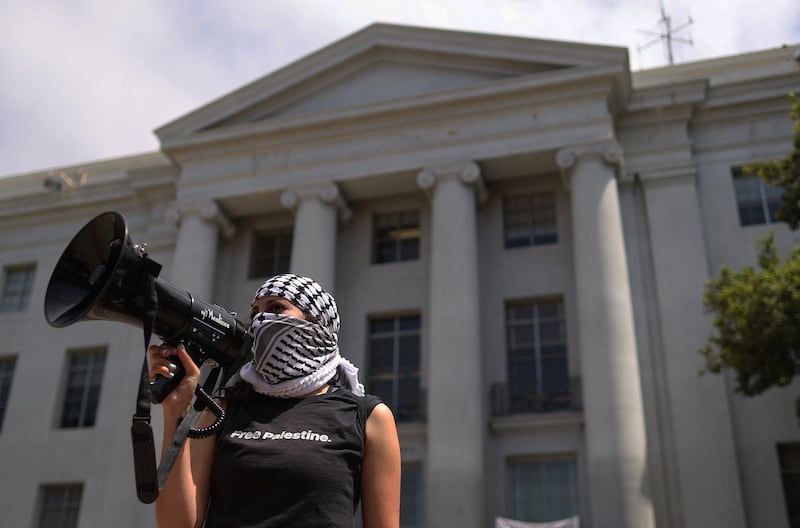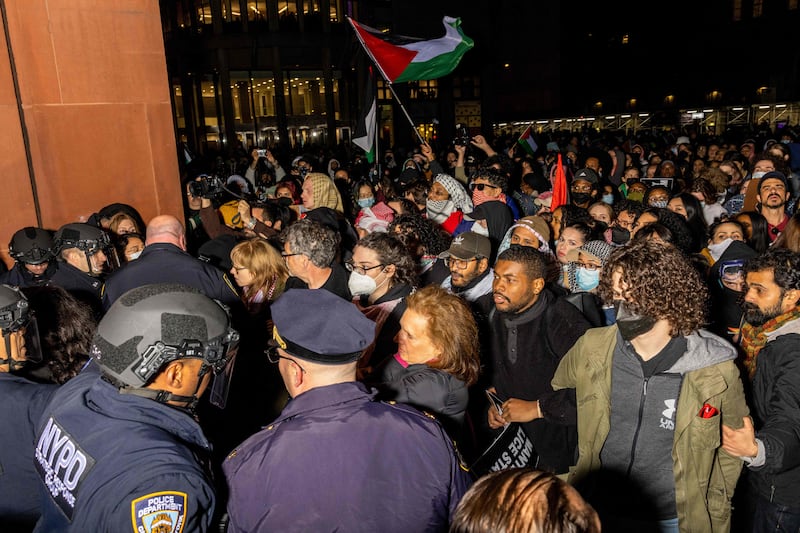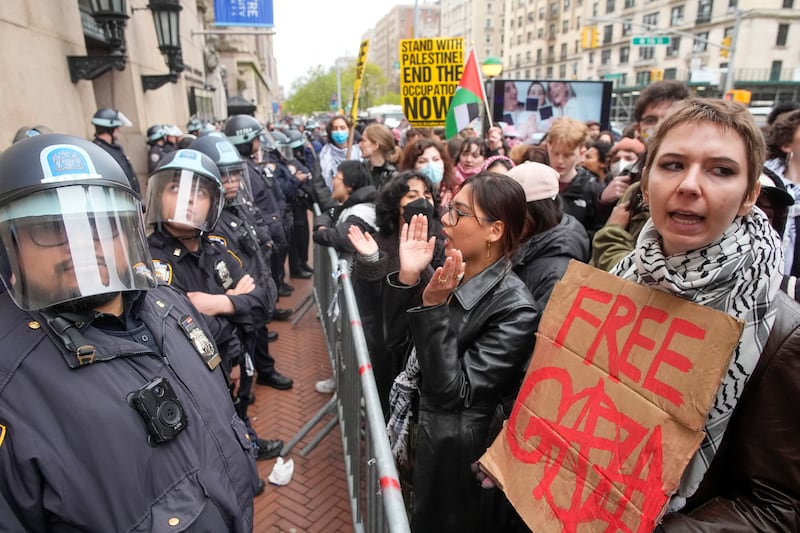Live updates: Follow the latest on Israel-Gaza
In a marked shift in tone, US President Joe Biden said this week that he would block the delivery of weapons to Israel that could be used in Rafah, the densely populated southern city in Gaza where more than a million Palestinians have taken shelter.
The comments, made during an interview late on Wednesday, were the first time that Mr Biden has publicly said he would use US arms to try to influence how Israel wages its seven-month war in Gaza.
“If they go into Rafah, I’m not supplying the weapons that have been used historically,” he told CNN.
“It’s just wrong. We’re not going to supply the weapons and artillery shells.”
Until now, Mr Biden, a long-time supporter of Israel, had resisted calls to put conditions on military aid to the country, even as the death toll in Gaza – at more than 34,900 according to local authorities – continues to rise and a humanitarian crisis worsens.
His remarks highlighted the growing rift between him and Israeli Prime Minister Benjamin Netanyahu. They also underscored the high stakes for Mr Biden, who is running for re-election and facing intense domestic and international pressure to do more to end the bloodshed.
“He’s drawn a pretty clear red line in the sand,” Jim Manley, a Democratic strategist, told The National. “Based on his past history, I am frankly shocked that he made these comments.
“This goes against everything he said for years, which leads me to suggest he's very troubled by what he's seeing.”
The Biden administration has for weeks been calling on Israel to refrain from launching a major ground offensive in Rafah, arguing it would pose a significant risk to the roughly 1.5 million displaced Palestinian civilians, many of whom are living in tents.
An invasion of Rafah, the White House said, also threatens already fraught international efforts to bring about a six-week ceasefire.
“Any kind of major Rafah ground operation would actually strengthen Hamas's hands at the negotiating table, not Israel's. That's our view,” National Security Council spokesman John Kirby told journalists on Thursday.
Israel launched a major military offensive in Gaza on October 7, after Hamas gunmen attacked southern Israel, killing 1,200 people and taking scores hostage, according to local authorities.
The US is by far the biggest supplier of weapons to Israel, sending more than $3.3 billion in military funding annually, with more on the way.
The 1,000kg bombs that Israel has been dropping in Gaza came from the US, with Mr Biden acknowledging that they had been used to kill civilians.
Still, Mr Biden has shrugged off domestic pressures to push for a permanent ceasefire in Gaza, even as dozens of protest camps have sprung up on university campuses across the US, with student chants and signs calling the President “Genocide Joe”.
“The people here in the United States, who are frustrated at the President over his failure to do this, are asking the same question: Why did it take so long?” Yousef Munayyer, head of the Palestine-Israel programme at the Arab Centre in Washington, told The National.
“Obviously, those who are vehemently pro-Israel are going to be upset about this, so politically, it didn't make sense to wait this long to do it either.
“And, of course, we don't really know if he's going to follow through.”
In the interview, Mr Biden pledged to continue to provide Israel with the weapons it needs to defend itself.
Still, the move has already drawn intense criticism from Israel's far-right government and conservatives in Washington, who said it could be grounds for impeachment.
Meanwhile, a defiant Mr Netanyahu has said he would go ahead with invading Rafah, with or without US support.



